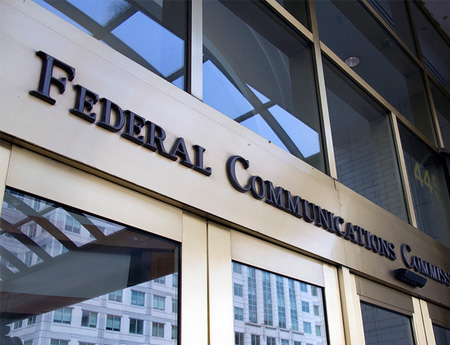FCC Considers Auction Rule Options

The smarter way to stay on top of broadcasting and cable industry. Sign up below
You are now subscribed
Your newsletter sign-up was successful
The FCC has sought input on a host of proposals to change its bidding rules in advance of the broadcast incentive auction, including whether to make it easier for designated entities who lease spectrum to larger players to qualify for bidding discounts, as the FCC had initially proposed.
The FCC, through a request for further comment approved last week, is seeking more input on how it can make it easier for smaller businesses to participate in the auction without allowing "unjust enrichment to ineligible entities." The window for comment will be short, less than a month for both comments and reply comments.
That is because the FCC needs to get moving on any bidding rule changes if it is to make its early 2016 incentive auction deadline.
Last October, the FCC voted not to let the Big Four carriers—Verizon, AT&T, Sprint and T-Mobile—team up to bid for wireless spectrum, but it proposed not making spectrum leases with those big carriers a de facto bar on DE bidding credits, which was the reasoning behind the FCC's granting of a waiver to Grain Management for DE status in the AWS-3 auction.
After criticism was leveled, including in Congress, by broadcasters and notably FCC commissioner Ajit Pai, at Dish for bidding in the AWS-3 auction through two DEs majority owned by the satellite operator, FCC chairman Tom Wheeler signaled he would be seeking further comment, which it did April 17).
Two of the changes on which the FCC is seeking specific comment would disallow the designated entity status in the future to the kind of financial relationship Dish has with the AWS-3 auction bidders. Dish had an 85% investment in the two bidders who got designated entity status in the AWS-3 auction and applied for the DE discount, which would save them – and Dish – some $3 billion.
The changes are:
The smarter way to stay on top of broadcasting and cable industry. Sign up below
• "Restricting larger nationwide and regional carriers, entities with a certain number of end-user customers, and/or other large companies from providing a material portion of the total capitalization of DE applicants or otherwise exercising control over such applicants as part of the definition of ‘material relationship;’"
• “[A]dopting a rebuttable presumption that equity interests of 50 percent or more represent de facto control of the [DE] company."
The FCC has yet to decide whether to grant the designated entity discounts sought by the two companies.
Commissioner Pai used his statement on the vote to lay into the auction bidding rules once again. "The AWS-3 auction taught us some important lessons. One of them is that our small business, or 'designated entity' (DE), program has become a playpen for corporate giants," he said.
"The results of the AWS-3 auction have spurred a broad-based consensus against this anticompetitive arbitrage. And this Public Notice tees up a wide range of proposals that, if adopted, would end this corporate welfare. I want to thank my colleagues for accommodating my request that we put all options on the table, including strictly limiting how much large companies can invest in a designated entity, capping the taxpayer subsidy that any designated entity can obtain during an auction, prohibiting coordinated bidding, and fundamentally revising our attribution rules," Pai said.
Contributing editor John Eggerton has been an editor and/or writer on media regulation, legislation and policy for over four decades, including covering the FCC, FTC, Congress, the major media trade associations, and the federal courts. In addition to Multichannel News and Broadcasting + Cable, his work has appeared in Radio World, TV Technology, TV Fax, This Week in Consumer Electronics, Variety and the Encyclopedia Britannica.

